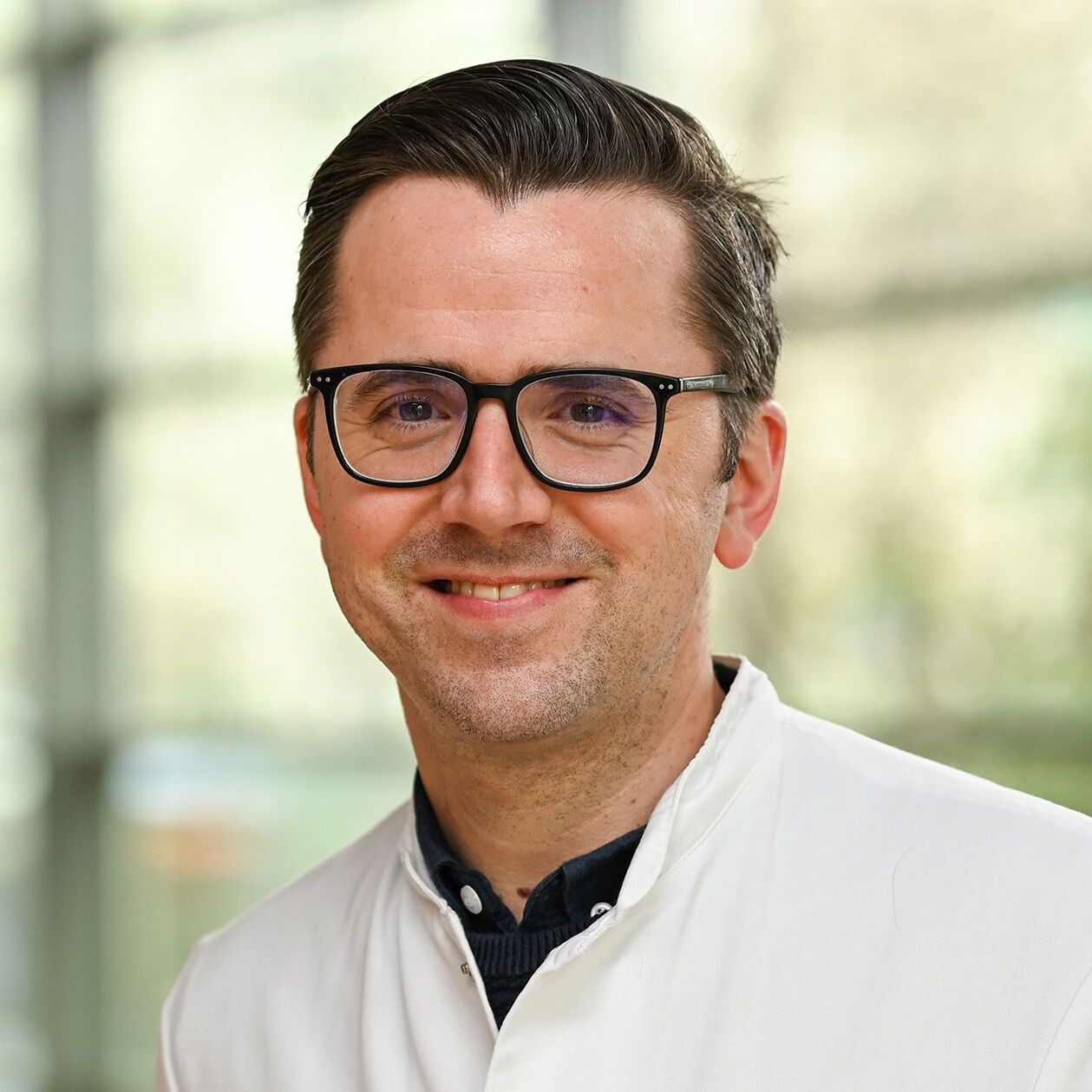-
Yin Y, Sichler A, Ecker J, Laschinger M, Liebisch G, Höring M, Basic M, Bleich A, Zhang XJ, Kübelsbeck L, Plagge J, Scherer E, Wohlleber D, Wang J, Wang Y, Steffani M, Stupakov P, Gärtner Y, Lohöfer F, Mogler C, Friess H, Hartmann D, Holzmann B, Hüser N, Janssen KP*. Gut microbiota promote liver regeneration through hepatic membrane phospholipid biosynthesis. Journal of Hepatology 2023 Apr;78(4):820-835. doi:10.1016/j.jhep.2022.12.028.Epub 2023 Jan 18. PMID: 36681162. (IF 30.083)
-
Kaufmann B, Leszczynska A, Reca A, Boosheri LM, Onyuru J, Tan ZH, Wree A, Friess H, Hartmann D, Papouchado B, Broderick L, Hoffman HM, Croker B, Zhu YP, Feldstein AE. NLRP3 activation in neutrophils induces lethal autoinflammation, liver inflammation, and fibrosis. EMBO Reports 2022. Nov 7;23(11):e54446. doi: 10.15252/embr.202154446. PMID: 36194627. (IF 9.421)
-
Wang J, Wang Y, Steffani M, Stöß C, Ankerst D, Friess H, Hüser N, Hartmann D. (*equal contribution) Novel risk classification based on pyroptosis-related genes defines immune microenvironment and pharmaceutical landscape for hepatocellular carcinoma. Cancers (Basel) 2022; 14(2):447. doi: 10.3390/cancers14020447. PMID: 35053610. (IF 6.639)
-
Schneider CV, Schneider KM, Teumer A, Rudolph KL, Hartmann D, Rader DJ, Strnad P. Association of telomere length with risk of disease and mortality. JAMA Internal Medicine 2022; 182(3):291-300, doi: 10.1001/jamainternmed.2021.7804. PMID: 35040871. (IF 21.873)
-
Dudek M, Pfister D, Donakonda S, Filpe P, Schneider A, Laschinger M, Hartmann D, Hüser N, Meiser P, Bayerl F, Inverso D, Wigger J, Sebode M, Öllinger R, Rad R, Reider S, Hegenbarth S, Anton M, Guillot A, Bowman A, Heide D, Müller F, Ramadori P, Leone V, Garcia-Caceres C, Gruber T, Seifert G, Kabat AM, Mallm JP, Reider S, Effenberg M, Roth S, Billeter AT, Müller-Stich B, Pearce EJ, Nolte-Koch F, Käser R, Tilg H, Thimme R, Boettler T, Tacke F, Dufour JF, Haller D, Murray PJ, Heeren R, Zehn D, Böttcher JP, Heikenwälder M, Knolle PA. Auto-aggressive CXCR6+ CD8 T cells cause liver immune pathology in NASH. Nature 2021; 592(7854):444-449. doi: 10.1038/s41586-021-03233-8. PMID: 33762736. (IF 42.778)
-
Zhang X, Olsavszky V, Yin Y, Wang B, Engleitner T, Öllinger R, Schledzewski K, Koch PS, Rad R, Schmid RM, Friess H, Goerdt S, Hüser N, Géraud C, von Figura G, Hartmann D. (equal contribution) Angiocrine hepatocyte growth factor signaling controls physiologic organ and body size and dynamic hepatocyte proliferation to prevent liver damage during regeneration. American Journal of Pathology 2020; 190(2):358-371. doi:10.1016/j.ajpath.2019.10.009. PMID: 31783007 (IF 4.069)
-
Baumann T, Dunkel A, Schmid C, Schmitt S, Hiltensperger M, Lohr K, Laketa V, Donakonda S, Ahting U, Lorenz-Depiereux B, Heil JE, Schredelseker J, Simeoni L, Fecher C, Körber N, Bauer T, Hüser N, Hartmann D, Laschinger M, Eyerich K, Eyerich S, Anton M, Streeter M, Wang T, Schraven B, Spiegel D, Assaad F, Misgeld T, Zischka H, Murray PJ, Heine A, Heikenwälder M, Korn T, Dawid C, Hofmann T, Knolle PA, Höchst B. Regulatory myeloid cells paralyze T cells through cell-cell transfer of the metabolite methylglyoxal. Nature Immunology 2020; 21(5):555-566. doi:10.1038/s41590-020-0666-9. PMID: 32327756. (IF 23.5)
-
Wang B, Kaufmann B, Engleitner T, Lu M, Mogler C, Olsavszky V, Öllinger R, Zhong S, Géraud C, Cheng Z, Rad RR, Schmid RM, Friess H, Hüser N, Hartmann D, von Figura G (*equal contribution). Brg1 promotes liver regeneration after partial hepatectomy via regulation of cell cycle. Scientific Reports 2019; 9(1):2320. doi:10.1038/s41598-019-38568-w. PMID: 30787318. (IF 4.122)
-
Cheng Z, Liu L, Zhang XJ, Lu M, Wang Y, Assfalg V, Laschinger M, von Figura G, Sunami Y, Michalski CM, Kleeff J, Friess H, Hartmann D, Hüser N (equal contribution). Peroxisome Proliferator-Activated Receptor gamma negatively regulates liver regeneration after partial hepatectomy via the HGF/c-Met/ERK1/2 pathways. Scientific Reports 2018; 8(1):11894. doi:10.1038/s41598-018-30426-5. PMID: 30089804. (IF 4.122)
-
Yuan D, Huang S, Berger E, Liu L, Gross N, Heinzman F, Ringelhan M, O’Connor T, Stadler M, Meister M, Weber J, Öllinger R, Simonavicius N, Reisinger F, Hartmann D, Meyer R, Reich M, Seehawer M, Leone V, Höchst B, Wohlleber D, Jörs S, Prinz M, Spalding D, Protzer U, Luedde T, Terracciano L, Matter M, Longerich T, Knolle P, Ried T, Keitel V, Geisler F, Unger K, Cinnamon E, Pikarsky E, Hüser N, Davis RJ, Tschaharganeh DF, Rad R, Weber A, Zender L, Haller D, Heikenwalder M (*equal contribution). Kupffer-cell derived TNF triggers cholangiocellular tumorigenesis through JNK due to chronic mitochondrial dysfunction and ROS. Cancer Cell 2017; 31(6):771-789.e6. doi:10.1016/j.ccell.2017.05.006. PMID: 28609656. (IF 22.844)
-
Begus-Nahrmann Y, Hartmann D, Kraus JM, Eshraghi P, Scheffold A, Grieb M, Rasche V, Schirmacher P, Lee HW, Kestler HA, Lechel A, Rudolph KL. (*equal contribution). Transient telomere dysfunction induces chromosomal instability and promotes carcinogenesis. Journal of Clinical Investigation 2012; 122(6):2283-2288. doi:10.1172/JCI61745. PMID: 22622037. (IF 13.251)
-
Hartmann D, Srivastava U, Thaler M, Kleinhans KN, N’Kontchou G, Scheffold A, Bauer K, Kratzer RF, Kloos N, Katz SF, Song Z, Begus-Nahrmann Y, Kleger A, von Figura G, Strnad P, Lechel A, Günes C, Potthoff A, Deterding K, Wedemeyer H, Ju Z, Song G, Xiao F, Gillen S, Schrezenmeier H, Mertens T, Ziol M, Friess H, Jarek M, Manns MP, Beaugrand M, Rudolph KL (*equal contribution). Telomerase gene mutations are associated with cirrhosis formation. Hepatology 2011; 53(5):1608-1617. doi:10.1002/hep.24217. PMID: 21520174. (IF 14.079)




